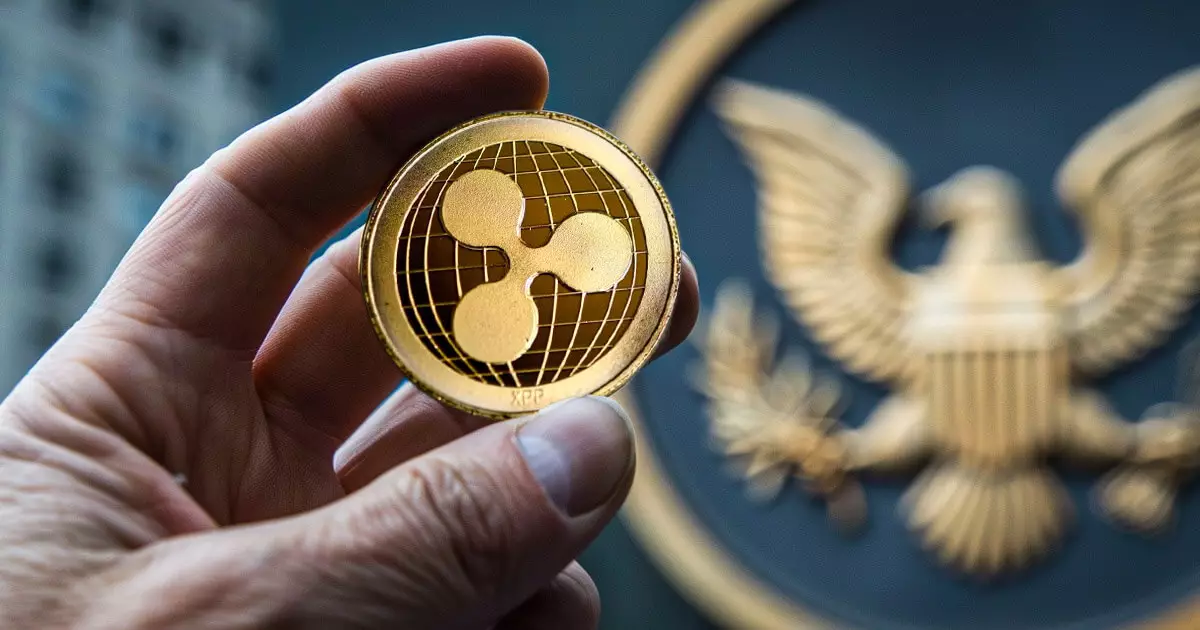The ongoing saga of Ripple Labs and the U.S. Securities and Exchange Commission (SEC) has captured the attention of the cryptocurrency community since the commencement of legal proceedings back in 2020. As the stakes rise, both parties recently solidified their positions, with Ripple filing a notice of cross-appeal just after the SEC announced its appeal. This legal showdown exemplifies the contentious relationship between regulatory bodies and cryptocurrency firms, raising questions about the future landscape of the sector.
The SEC’s initial lawsuit against Ripple Labs stemmed from allegations that the company was unlawfully selling unregistered securities in the form of its native cryptocurrency, XRP. The total worth of these alleged transactions amounted to a staggering $1.3 billion. The case sparked widespread debate regarding the classification of cryptocurrencies and whether they should be treated as securities under existing laws. As cryptocurrency continued to gain traction, the SEC intensified its scrutiny, seeking to establish clearer guidelines and hold companies accountable for regulatory compliance.
Despite the complexities surrounding the case, the U.S. District Court for the Southern District of New York, led by Judge Analisa Torres, delivered a mixed verdict in July 2023. She concluded that while Ripple’s institutional sales of XRP indeed violated securities laws, programmatic sales—those conducted on exchanges—did not fall under the same purview. This decision offered a glimmer of hope to Ripple Labs and its supporters, yet it sparked an immediate counter-move from the SEC.
Ripple’s recent cross-appeal was filed on October 10, marking a strategic response to the SEC’s own appeal during the same month. The overlapping appeals will now be merged, extending the litigation process and adding layers of complexity. While Ripple faces a daunting $125 million civil penalty, a figure far less than the SEC’s original target of $2 billion, the company is determined to contest this penalty. Ripple’s Chief Legal Officer, Stuart Alderoty, articulated the aim of the cross-appeal as a measure to “ensure that nothing is left on the table,” revealing the company’s commitment to a full-fledged legal battle.
The cross-appeal demonstrates Ripple’s desire to challenge every aspect of the ruling, potentially impacting not only their own future but also that of the broader crypto industry. Alderoty’s remarks hint at the SEC’s broader strategy, which may include classifying various XRP sales—such as those on exchanges and distributions to employees—as securities, a classification Ripple vehemently contests.
The larger implications of this ongoing legal dispute extend beyond Ripple Labs. It has sparked questions and debates about regulatory clarity within the cryptocurrency industry. Ripple CEO Brad Garlinghouse accused the SEC of fostering confusion and chaos amid an already volatile market. His comments resonate with many in the crypto community, who feel that regulatory bodies often adopt a “regulation-by-enforcement” approach rather than providing necessary guidance that could foster innovation and growth.
Ripple’s determination to fight against SEC regulations has positioned the company as both a prominent player and a fierce advocate within the field. The outcome of this case could establish a significant precedent for similar companies facing scrutiny from regulatory agencies. Should Ripple prevail, it may set the stage for more lenient regulatory interpretations, while a victory for the SEC could compel the entire industry to restructure its operating frameworks in compliance with traditional securities laws.
As Ripple Labs and the SEC engage in this high-stakes legal contest, the crypto community remains on edge, watching closely for developments that could alter the regulatory landscape significantly. The cross-appeal and ensuing litigation have become emblematic of larger battles between decentralized technology and traditional systems of governance. As both parties prepare for further court deliberations, the outcome remains uncertain, but one thing is clear: the resolution of this conflict could redefine how cryptocurrencies are perceived and regulated in the United States for years to come.

